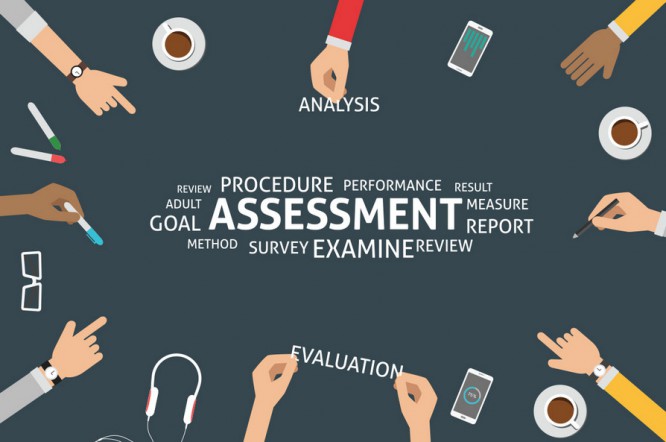5 facts about what makes a good designer
5 facts about what makes a good designer
Rome was not built in one day. Likewise, no designer has become a super professional overnight. Let’s face it, becoming a professional designer takes time, patience, and a lot of practice.
To get better, you need to learn from your mistakes or overcome all difficulties as you advance in your career. Every designer starts out by creating a piece of crap, and that’s okay rather than the other way around. Criticism from others is what keeps us fighting and getting better. Of course, it breaks many people and makes them quit design.
It’s just a kind of dividing line separating the wheat from the chaff.
Work your 10,000 hours
According to many, and in particular Malcolm Gledwell, to become a good specialist you need to have at least 10,000 hours of practical experience in your bosom. You can argue with this theory for as long as you like, but there is still a rational grain in it – to become a pro you need to work very long and hard. Some will be able to succeed faster, others will take a little longer, but you have to work pretty damn hard.
10,000 hours will bring you only a certain amount of experience, but not the ability to understand absolutely all planes of the profession. But there is a small trap here – experience cannot help you out in any unfamiliar situation, and experience is limited only to those solutions that you have already encountered. Needless to say, new requirements and tasks appear in design almost every day. Finding your niche is what makes you a good designer. Specialization allows you to thoroughly study a particular direction or trend and, with its help, find a job for your liking.

Social approval
Even a good job sometimes becomes bad when it looks like a lot of others. It simply dissolves into great diversity – keep this in mind.
Don’t believe me? Take Dribbble for example. How many designers post their work on this resource? How many of these works look the same or have the same performance? That’s right, a hell of a lot!
No designer can be good at everything. Understanding your weaknesses allows you to better understand your strengths. The awareness of your imperfection is the piston that pushes you to reach new heights and master the untapped, dig deep where everyone else is not digging. And the emergence of such professions as a web designer, print designer or even a publication designer is just another confirmation of the importance of self-improvement in the design plane in which you are most powerful.

Feedback Hunt
Getting feedback from your peers is one of the most important activities that will allow you to understand if you are moving in the right direction. Whether you are making a success or your work is just a chewed copy of the work of other designers. Have you developed your own style and are skillful in solving complex problems in your work?
By evaluating your work, you put your decisions and your style to the test. For beginners, this feedback is best obtained from a design school or course. Of course, not every person normally takes criticism, especially if it sounds about something whose creation you spent a lot of time and really put your heart into.
Letting people judge your work harshly will only make you better.

Try, try again
Good designers have favorite steps they take to find a good solution for any project. Sketching ideas is usually the first step towards solving a design problem. At this stage, there are a huge number of terrible ideas that you first try to implement, but in the end you realize that this is just rubbish. And this process continues until the most rational solution is found.
A lot of good design is done with inspiration from very simple things. Ideas often come to us subconsciously during the non-main activity of a walk or a trip to the local store. How many ideas have been sketched out on a cocktail napkin at a local bar and how little you can squeeze out of yourself in the office.
When you fall, you learn. The ability to accept failure is what makes a person successful. Many businesses or projects are the result of one or many failures. The key is to keep trying. Each failure is a new piece of knowledge that you can use to avoid future mistakes. In the end, the path you take turns out to be successful and all the hard work you put into your project is the path to greater reward.

Look outside the box
Creativity is not something you learn or learn in school, but practice and experience are good ways to improve it. While most websites have clearly defined goals and try to meet them, creative designers develop a unique approach to accomplish those goals.
Going beyond your established creative boundaries doesn’t mean knowing what other designers don’t know: it means using what you already have in a new and impressive way. You don’t have to reinvent the wheel, but rather make unexpected transitions from one color scheme to another, mix typography or add typography.
Key findings
Getting better is not easy, it is a very long and complicated process. Here are some simple rules that will help you move forward much more confidently:
- When you feel like you are practicing a lot, practice even more. Only a huge stock of solved problems will give you the opportunity to project the acquired knowledge into further activities.
- Accept judgment and criticism from anyone who can highlight the rationale behind your work. Consider feedback to improve your next project. No matter how much you are not sure of your decision, there is always an end user of the product who can suggest the right decision based on a banal user experience.
- To highlight what you are stronger than many others – it is easier for narrowly focused specialists to look for projects.
- Failure is good. These are the ones you should learn from.
- Don’t give up and work on every facet of your talent – this is the only way you can become a super pro.
- Start your own blog or start offering news on well-known design portals – this will give you not only valuable experience in terms of systematizing previously acquired knowledge, but also help in terms of promoting yourself in the labor market.
Source: skillsup.ru
Cover photo: ShutterStock
…

